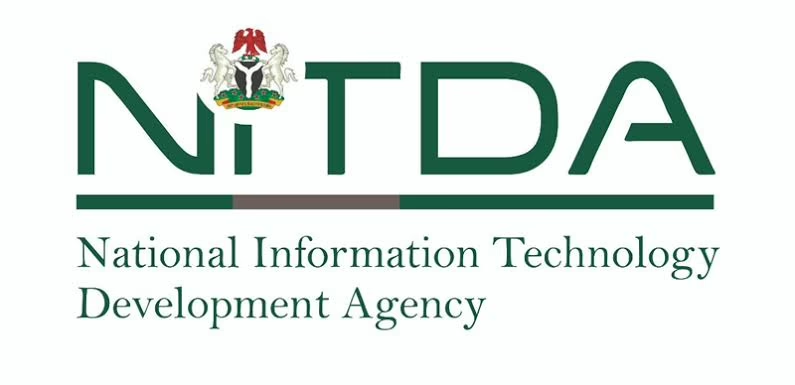The future of digital education in Nigeria is promising, with increasing internet access, a rise in online learning platforms, and the integration of technology in classrooms. Customised learning experiences will be provided through data analytics and artificial intelligence, and there will be a focus on skills development for the future job market. As internet connectivity becomes more accessible and affordable, more students will have access to digital devices, educational resources, and platforms, enabling more robust student-teacher and parent-teacher learning and interaction opportunities respectively, in urban, rural, and underserved areas. The surge in online learning and administration platforms in Nigeria offers flexibility and convenience for teachers to facilitate lessons and students can learn at their own pace and be guided by the teachers, opening opportunities for learning acceleration and lifelong learning.
The use of technology in traditional classrooms will become more prevalent, with interactive whiteboards, tablets, laptops, and other digital tools incorporated to enhance teaching and learning experiences. In the realm of education, Edves assumes a pivotal role as a digital infrastructure champion, facilitating the comprehensive digitisation of students’ educational odysseys. This translates into a seamless process for monitoring learning outcomes, tracking students’ progress, and leveraging Artificial Intelligence to provide insightful recommendations. Our primary focus is on tackling the Learning Crisis head-on by spearheading a digital revolution in both learning and administration. This approach ensures the availability of both quantitative and qualitative data, empowering educators, parents, government agencies and other stakeholders to make informed decisions that significantly enhance the quality of education across Nigerian and African schools.
In addressing the current challenges faced by educators and learners in the Nigerian education system, our innovative technology at Edves addresses the current challenges faced by educators and learners in the Nigerian education system by automating manual processes such as lesson planning, school enrollment, attendance marking, payments, assessments, and administrative functions. This automation not only saves time for educators but also enhances their productivity, allowing them to focus more on teaching students. Through our intuitive dashboard, school administrators can effortlessly gather information on student academic performance, financial status, and parent engagement. The dashboard provides detailed statistics on student numbers, and gender distribution per term and session, and allows administrators to closely monitor students at risk of falling behind. The integration of Artificial Intelligence takes education to the next level. Teachers gain access to world-class information that guides them in implementing interventions to revitalise the national curriculum and pedagogy. AI enables teachers to engage students effectively by tailoring teaching styles to accommodate different learning preferences and paces of assimilation. Our technology ensures secure data storage, giving educators peace of mind regarding the safety and accessibility of their data through mobile apps and the web. The structured format of stored records empowers educators to make informed decisions, ultimately improving the overall quality of education. Learners benefit from a transformative learning experience, gaining exposure to new technologies that prepare them for future work environments. With easy access to learning materials and the flexibility of learning on the go, learners are no longer confined to physical classrooms. AI integrations provide valuable feedback on assessments, fostering improved performance and encouraging a lifelong learning mindset.
The current state of ICT as an industry in Nigeria can be described as rapidly growing and dynamic. The ICT industry in Nigeria has played a crucial role in driving technological innovation in the country. It has contributed to the development of various sectors, including finance, education, etc. ICT has enabled the emergence of innovative solutions and services, addressing the unique challenges faced by Nigeria to drive economic growth. One key aspect of the ICT industry’s role in driving technological innovation is the rise of startups and entrepreneurship. Nigeria has witnessed a boom in tech startups, with 180 startups (28.4 per cent of Africa’s funded ventures) raising a combined US$976,146,000 in 2022. These startups are leveraging ICT to develop innovative products and services, disrupting traditional industries, and solving pressing societal problems. The ICT industry in Nigeria has also fostered increased connectivity and access to technology. The proliferation of mobile devices and the growth of internet penetration have brought millions of Nigerians online and connected them to the digital world. This connectivity has opened opportunities for innovation, online businesses, e-learning, and access to essential services. However, challenges still exist in the ICT industry in Nigeria. Limited infrastructure, including inadequate power supply and unstable internet connectivity, remains a significant hurdle that causes the digital divide in the education industry. Additionally, there is a need for more investment in research and development, digital skills training, and enhanced cybersecurity measures to ensure the sustainability and continued growth of technological innovation. Overall, the ICT industry in Nigeria is thriving and has emerged as a key driver of technological innovation. Its role in transforming various sectors and empowering entrepreneurs and startups cannot be overstated. With continued support from the government, investments, and a focus on addressing challenges, the ICT industry in Nigeria has the potential to drive further innovation and propel the country into a digital future.
The ICT industry in Nigeria is playing a significant role in job creation and economic growth. The ICT industry nurtures a vibrant start-up ecosystem in Nigeria. The availability of technology infrastructure, access to funding, and supportive government policies have encouraged the growth of various tech start-ups in the country. These start-ups contribute to job creation, attract foreign investments, and stimulate local economic activities. The growth of the ICT industry is driving the development of a digital economy in Nigeria. E-commerce, digital payments, telecommunication services, remote tech Jobs, and other digital platforms contribute to the overall economic growth of the country. This digital transformation is creating new business opportunities and driving innovation across various sectors. The ICT industry plays a crucial role in skill development and human capital development in Nigeria. The demand for skilled professionals in areas such as programming, cybersecurity, data analysis, and digital marketing is increasing. This has led to the growth of training institutions, coding boot camps, and online learning platforms, equipping individuals with relevant skills and increasing their employability. The industry is creating employment opportunities for the working-age population. With the growth of internet penetration and increased use of smartphones, there is a rising demand for digital services, software development, IT support, and other ICT-related jobs. This has resulted in the creation of numerous direct and indirect job opportunities across the country. The ICT industry in Nigeria is diversifying the economy, creating employment opportunities, attracting investments, and driving economic growth through the development of a digital ecosystem and the adoption of digital technologies.
Our technology solutions are deployed in the cloud, which makes them accessible to anyone with internet access on the Web and mobile devices. Some of the offerings are also available offline, meaning that parents and students without smart devices can access the platform.
To boost Nigeria’s ICT industry, regulatory reforms should simplify licensing, reduce bureaucracy, and ensure fair competition. Investing in broadband infrastructure, enforcing robust data privacy and cybersecurity measures, and promoting digital skills development are crucial. Support for innovation and startups, including impact funding and entrepreneur-friendly regulations, is essential. Collaboration and partnerships between the government, industry, and international organisations will facilitate knowledge sharing and technology transfer, fostering rapid growth in the ICT sector.
Government policy and regulation play a significant role in the growth of the ICT industry in Nigeria in several ways. In the area of investment in Infrastructure, the government has implemented policies to encourage the development of ICT infrastructure, such as the National Broadband Plan, which aims to improve internet penetration and connectivity across the country. This has led to increased accessibility, enabling the growth of the industry. As regards investment in tax credit, the Federal Government, through the Federal Ministry responsible for Finance and other MDAs, documented in the Nigerian Startup Act 2022, has developed a national policy for incentives for individuals, impact investors, angel investors, companies, venture capitalists, private equity funds, accelerators or incubators which invest in a labelled startup or in the startup ecosystem to enjoy tax credits on their investment. Furthermore, the liberalisation of the telecommunications market in 1992 allowed for the entry of more players to enter the industry. This has led to increased competition and innovation as well as promoting growth and development in the communication industry. In addition, established regulatory bodies such as the Nigerian Communications Commission oversee the operations of operators in the ICT sector and ensure their compliance with regulations. This has provided a stable and predictable regulatory environment for ICT companies, as well as protect the consumer’s interest. Initiatives such as the Nigerian Content Development in ICT Policy encourage local content development as well as technology leading to the creation of jobs for Nigerians, promotion of the use of indigenous products and services, creativity, and innovation in the sector. Overall, the Nigerian Government has shaped the sector and enhanced its growth by providing a conducive environment for investments with its policy provisions.
Our mission is to “build a customer-centric operating system for Education through innovative technology solutions”. The specific tech solutions we provide are in the areas of streamlined learning and administrative operations by providing an intuitive dashboard for school administrators, lesson planning and delivery for teachers, student learning platforms, teacher performance analytics, Government oversight and planning dashboard, etc. Learning solutions such as AI-driven end-to-end learning Management, personalised learning, content-based curriculum, etc. Teachers Development in the areas of basic IT training and 21st Century Pedagogy.
International collaboration plays an important role in advancing the ICT industry in Nigeria in terms of knowledge exchange and technology transfer. Here are a few ways this can be achieved by international collaboration, knowledge, expertise, and best practices between countries can be shared. This will help Nigerian professionals and researchers to learn about new developments, trends, and innovative approaches in the ICT industry. Active participation in international conferences, policies (such as data privacy and Artificial Intelligence ethics), workshops, and training programs exposes Nigerian ICT professionals to cutting-edge research, technologies, and models that can be applied back home, in the country.
Collaborations with international partners facilitate the transfer of technology from more advanced countries to Nigeria. This can be done through licensing agreements, joint ventures, or direct investment. However, such transfers enable the adoption and implementation of advanced ICT infrastructure, systems, and solutions in Nigeria. For instance, partnerships with multinational IT companies can help Nigerian firms access state-of-the-art hardware and software technologies, accelerating the growth of the local industry. International collaborations can enable capacity-building initiatives that focus on training and skills development for Nigerian ICT professionals. This helps bridge the knowledge and skills gap by providing access to specialised expertise and training programs. Also, collaborations with foreign universities and institutions facilitate academic exchanges, scholarships, and research partnerships, nurturing a skilled workforce capable of driving innovation and growth in the Nigerian ICT sector.
International collaborations offer Nigerian ICT companies access to global markets, fostering growth and innovation. Partnering with foreign entities provides exposure, leading to increased revenue and competitiveness. Policymakers benefit from insights and benchmarks, enabling the development of effective strategies. Cooperation aligns policies and standards, facilitating integration with global ICT networks, ultimately advancing Nigeria’s digital infrastructure, and driving sectoral growth.
To bridge the digital divide and ensure the benefits of Information and Communication Technology reach all segments of the Nigerian population. The government can invest in the expansion of physical ICT infrastructure, such as the construction of broadband infrastructure in underserved areas. Special attention can be given to connecting rural and remote areas with internet services. Establishing community ICT centres in rural areas helps bridge the digital divide by providing access to computers, internet connectivity, and training programs. Promoting digital literacy among the youth is crucial. Programs can be designed to enhance their digital skills. This will ensure individuals can fully participate in the digital world. Collaboration between the government and private sector entities enables the provision of affordable ICT services. This partnership may involve infrastructure development, investment, and capacity-building initiatives to bridge the digital divide effectively. So, employing a multi-faceted approach combining infrastructure development, and digital literacy initiatives can support bridging the digital divide in Nigeria and ensure ICT benefits reach all segments of the population.
Conducting assessments before and after implementing our tech solution is vital for tracking progress in student journeys and learning outcomes. Surveys and feedback from students, teachers, and parents offer qualitative insights into satisfaction levels and areas for improvement. Monitoring usage frequency indicates engagement and positive learning impacts. Classroom observations and qualitative assessments provide additional valuable insights. We recommend a combined approach of these methods for a comprehensive understanding of our solutions’ impact on education.











